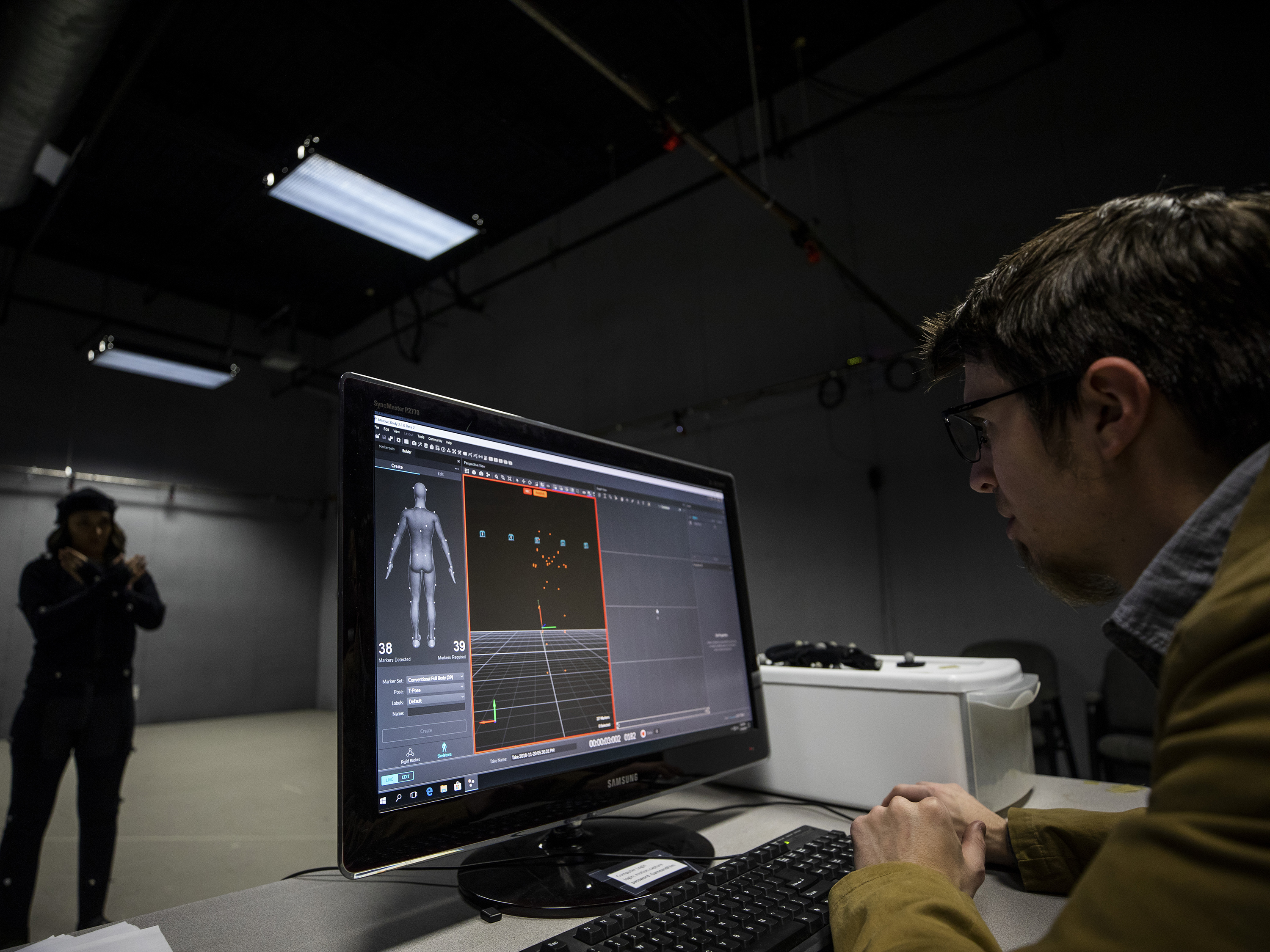The Center for Educational Technologies to Assist Refugee Learners is working to improve the lives of more than 70 million forcibly displaced refugees worldwide by making education more accessible.
The project, titled Education for All, is one of four awardees of Wichita State University’s Convergence Sciences Initiative, an effort to bring together the intellectual curiosity and strengths of faculty and students from a range of disciplines and give them the support to develop research programs that drive the diversity and growth of the Kansas economy while addressing global challenges.
Bridging the gap
“There are 3.4 million refugee students across the world who are out of school districts and don't have access to schools,” said principal investigator Dr. Mythili Menon, assistant professor of English and linguistics. “What we're trying to do is bridge that gap.”
Menon and her interdisciplinary team — including health researchers, linguists, game designers, engineers, journalists and educators — are working to create a game-based platform for K-12 refugee students in their native language. The initial work will be in Swahili for refugees from the Democratic Republic of Congo, a country that has been plagued by violent conflict for decades.
“We have this expectation that a lot of our students — irrespective of whether they are immigrant students, whether they’re refugee students — they speak English. If they don't speak English, they are put into language classes,” which Menon said puts them behind in other subjects.
“We're creating modules for elementary and middle school children with respect to language arts and science,” Menon said. “We're supplementing what the school districts are doing, but what we're doing is creating a free accessible technology, so you don't necessarily have to be in school to have access to the software.”
The idea is to offer parallel learning opportunities. A student might explore an interactive, roleplaying lesson on the solar system in both their native language and then later in English.
“What we're doing is not a translation software, but creating an educational software that can teach the students concepts in both English and in their language, say Swahili,” Menon said. “The idea is that students can learn in their language, and they can learn a new language.”
Early in 2021, Menon said Education for All will send surveys out to assess the needs of the refugee population.
“We have an idea of what languages they speak and where they come from, but we don't have anything conclusive."
The survey will also gather information on what types of devices refugee learners have access to — whether they have access to laptops, mobile technology and a stable Internet connection.
Building the game
Once the survey results have been compiled, the Education for All team will meet with all the stakeholders to create the software. That’s where Kelly Johnson’s expertise comes into play.
Johnson, assistant educator and program coordinator of game design for Shocker Studios, will be charged with facilitating the production of the end product.
The game will rely heavily on student input, survey results and research from the team’s investigators.
“I'll take that and run with it in terms of both building the infrastructure and the framework for the actual game that's being created,” Johnson said.
Accessibility and platform are considerations Johnson will take into account while building the game.
“I think web is by far the most successful in terms of like sending things out. If they have Internet access, that becomes the easiest way to get something to them. But that's another barrier because Internet access may not be a thing.”
Applied learning jackpot
Wichita State students from across campus, colleges and majors will have the opportunity to contribute to this project throughout all its developmental phases. Education for All will employ the talents of language consultants, research assistants — both graduate and undergraduate; and from Shocker Studios: 3D modelers, 2D game artists, sound designers, and “if it's story-driven, maybe that's a chance for some film students to be plugged into creating something,” Johnson said.
“We're going to have a lot of student support with this project,” Menon said. “One of the unique things about our product is [that] we're going to involve students at every level of the game.”
The target audience — K-12 refugee learners — will also be integral in the design process.
“Many times, products are designed for other people, but the intended audience is not involved in the creation of the product,” Menon said. “We are going to ask student feedback at every stage of the product.”
Pioneers in education
Education for All will receive $300,000 over three years to develop its project. Menon said she hopes the team will have a demo version of the game in the summer of 2021.
“This is community engagement, applied learning, and a service-learning opportunity with minority populations,” she said. “We are going to be playing a role as pioneers of education. I think it goes with the mission of Wichita state to be an economic driver, a social driver, a community driver in the state of Kansas.”
The United Nations Educational, Scientific and Cultural Organization (UNESCO) has a goal of education for all as a sustainable development goal by 2030, but “we're getting on this bandwagon 10 years ahead,” Menon said.
Johnson sees Wichita State’s Education for All game as a launching point for a much wider audience.
“This is hopefully a model by which we can follow to create more experiences to reach more of the type of student that is currently not being reached,” he said.


 File
File